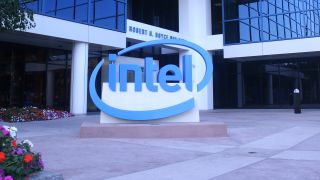According to a Reuters report the European Commission has once again fined Intel, this time for €376.36 million ($400.26 million), citing the company's misuse of its market dominance in the computer chip sector. This decision comes in the wake of the EU's General Court overturning a previous fine of 1.06 billion euros imposed on Intel in 2009. The initial penalty was for Intel's attempts to undermine AMD on the market of x86 CPUs.
Previously, the Commission had argued that Intel's financial incentives to computer manufacturers had negatively impacted market competition. However, the court had dismissed this claim, leading to the annulment of the hefty fine. The focus of the new penalty is on Intel's transactions between 2002 and 2006 with major computer producers such as Acer, HP, and Lenovo.
Intel's dealings with these manufacturers were allegedly aimed at stalling or even halting the introduction of products that incorporated CPUs from their competitors back in the early 2000s. Back then, Intel competed mostly against AMD, though there were other smaller x86 CPU suppliers. The court, in its recent judgment, recognized these rebates as a clear misuse of Intel's powerful market position.
However, the court's decision last year to nullify the original fine was not based on a rejection of Intel's market abuse. Instead, it was due to ambiguities regarding how the fine was related to Intel's questionable practices. The European Commission's renewed decision to fine Intel aims to address these ambiguities and hold the tech giant accountable for its actions during the specified period.
In summary, while Intel's market practices from 2002 to 2006 have been acknowledged as abusive, the exact penalties and their justifications have been a point of contention. The recent fine by the European Commission seeks to rectify past oversights and ensure that Intel's market dominance is not misused to the detriment of competitors and the broader industry.


